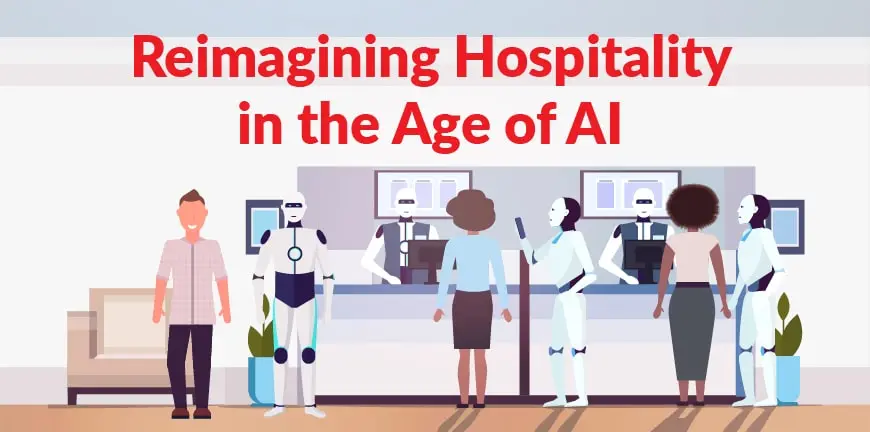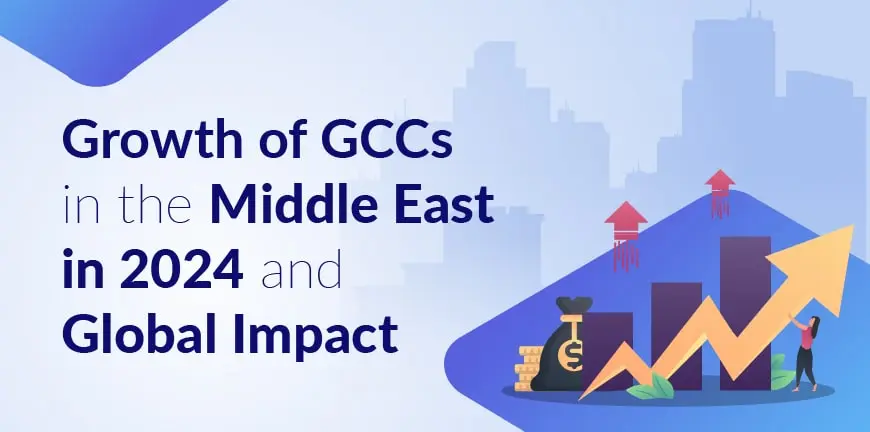
What Is Employer Branding and Why Does It Matter?
24/08/2024
Reimagining Hospitality in the Age of AI
29/08/2024Global captive centers (GCCs) are set up by large companies in strategic locations for the purpose of either strengthening their operations in the selected location or to contribute to the research and development of products and services happening at the parent company. These strategic locations are generally located outside the country where the headquarters or the main base of the company is located.
GCCs also act as a hub for training and strengthening emerging talent, contributing back to the country that has supported them, ensuring that the talent continues to improve. Also diversified initiatives in each country mean that the GCCs will begin to strengthen each industry that it is involved in. For instance, a GCC in Pharma can contribute to strengthening the health research in the country, even collaborate with existing government agencies.
GCCs have been growing at a rapid pace in the Middle Eastern countries, and they typically offer support to the parent companies in the areas of IT and back-office operations. The growth of GCCs in the Middle East is poised to continue in the coming years and here are some reasons we think it is going to keep going strong beyond 2024.
Why Growth of GCCs Will Be Strong in the Middle East in 2024
1. Strategic Location
The Middle Eastern countries are strategically located in between Europe and the East Asian countries. In fact, trade routes in the past generally used to cross through the Middle East since ancient times. Another great advantage is that the time zone is in between that of Asia and Europe, which means that people can work in comfortable shifts and still get the job done in a GCC.
2. Economic Diversification
The countries in the Middle East have a rich culture and the recent development of the oil and gas industry brought several GCCs in oil and gas to the Middle East. But the recent growth of other industries such as healthcare, real estate and even manufacturing has brought several other GCCs to visit the Arabian shores and set up their GCCs there.
3. Government Initiatives
The governments in the Middle East, particularly UAE, Qatar and Saudi Arabia are at the forefront of initiatives to attract foreign attention and investment in their growing talent and their infrastructure capabilities. Such initiatives include Saudi Arabia’s Vision 2030 and the interest shown by the UAE to become a tech, healthcare and learning hub by building its educational and research infrastructure.
4. Great Talent
With the growth of national universities, collaboration of colleges and universities with those from the West, and the growth of international talent, especially from India, moving into the Middle East over the years, the talent pool in the Middle East consists of highly skilled individuals. And this will continue to improve in the years to come and will support the growth of GCCs, especially in the UAE and Saudi Arabia.
5. Geopolitical Stability
The Middle East is more stable than the rest of the world when it comes to geopolitics. Though there have been tensions periodically, the Gulf Council Countries have been safe politically, economically and socially, with long-lasting peace. Such stability also means that GCCs in the countries are free to innovate and have quality infrastructure to make use of and have steady access to as well.
Global Impact of GCCs in the Middle East
The growth of GCCs in the Middle East will lead to changes in the global supply chains, with them shifting from the more traditional hubs to newer locations. It will also lead to the movement of talent from traditional GCC hubs like India, Mexico, Poland etc. to the Middle East. How these will affect talent attraction in these countries will be a thing to watch out for.
The growth of GCCs in the Middle East in a regulatory climate that is favorable for their operations will also make the other countries in the world rethink their focus areas in terms of compliance. The diversification seen in the industrial sectors in the Middle East will also impact the other countries both to the east and west.
This will make the countries rethink their future development routes. What industries must they focus on and what infrastructure can they offer what others can’t and most importantly, how do they develop the talent so that they become more attractive to companies wanting to establish GCCs? Political developments, economic policies and even climate change could impact the growth of GCCs in the Middle East and have an impact on the rest of the world.
Contact Us For Business Enquiry

Rajkumar Shanmugam
Rajkumar Shanmugam is the Head of HR at ALP Consulting, bringing over 19 years of comprehensive HR leadership experience across India and international markets. His expertise spans talent acquisition, employee relations, performance management, compliance, and HR transformation. Rajkumar has a proven track record of driving people-centric initiatives, enhancing workplace culture, and aligning HR strategy with business goals. With extensive experience in US staffing operations and global mobility, he continues to lead organizational excellence through innovation and employee engagement.




